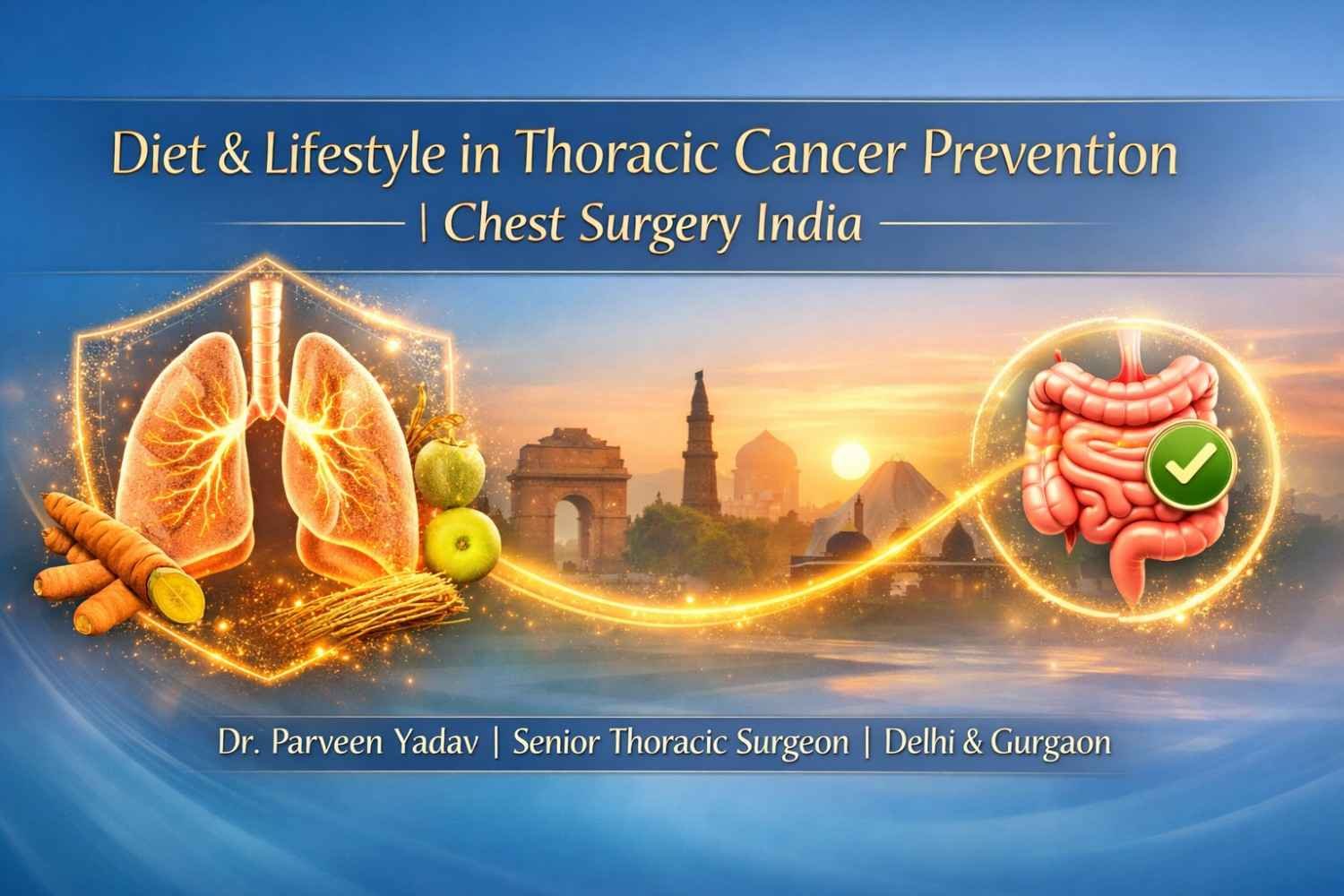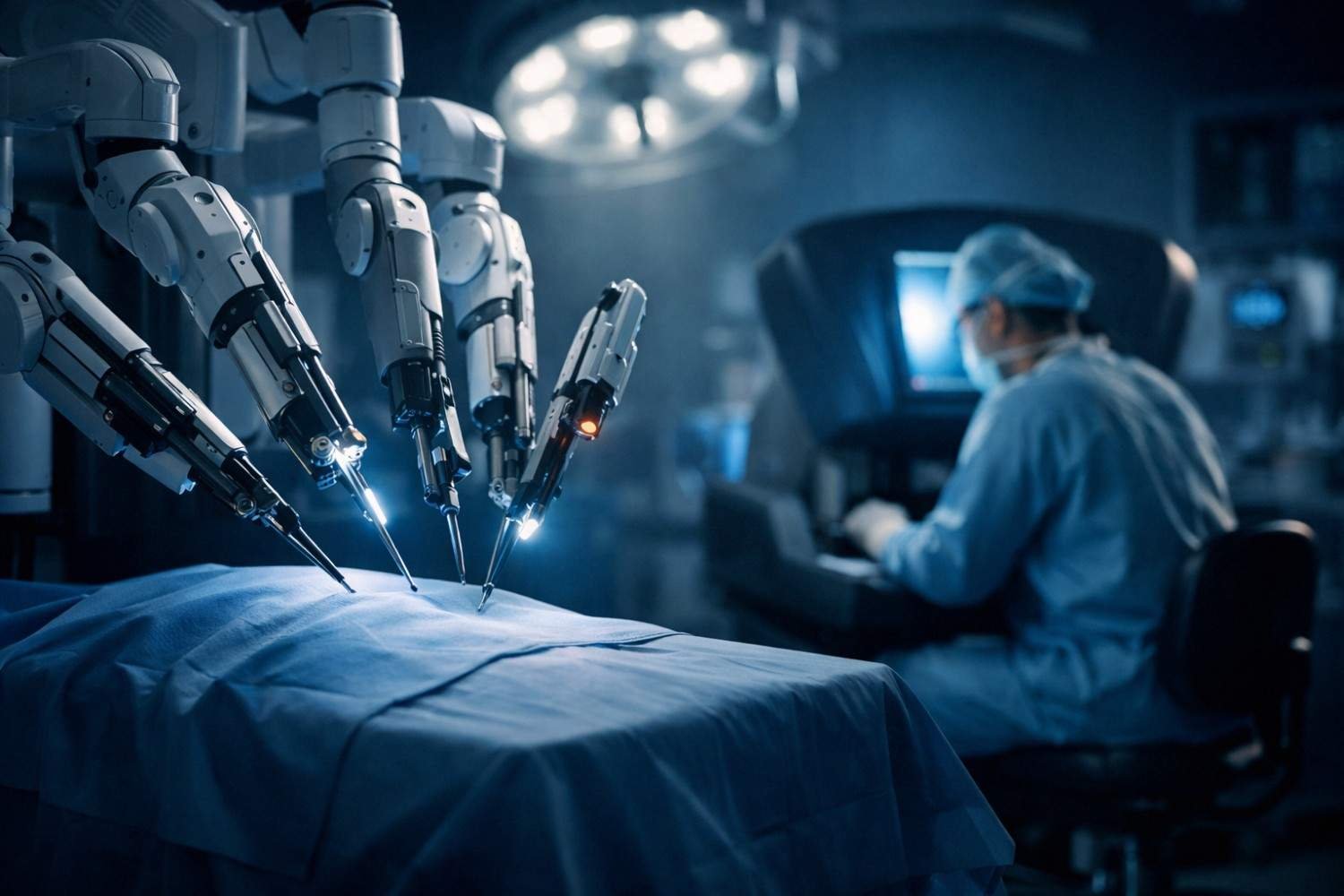

Your esophagus, also known as the food pipe, is one of the most important and sensitive organs in your body. Even minor damage to this organ can have major implications on the patient’s functionality. Esophageal cancer is a rare disease that is extremely serious and needs to be diagnosed without any delay.
However, this cancer is often diagnosed at a much later stage due to the symptoms seeming too trivial to be taken seriously. If you or anyone within your family has been noticing symptoms like hoarseness in voice, unexplained weight loss, less chain, etc., make sure you consult a specialist in your city. If you are a Gurgaon resident, seek the best esophagus cancer treatment in Gurgaon to get on the road to recovery.
Once detected, there are different ways of treating esophageal cancer. From surgery to radiation therapy, your oncologist will recommend the best procedure depending on the extent of damage and your specific medical conditions.
In this blog, we will discuss the critical procedures involved in cancer in food pipe treatment procedures.
Esophageal Cancer Surgery
Surgery is a common treatment option for esophageal cancer and can be used to remove the cancerous tissue and nearby lymph nodes. The goal of esophageal cancer surgery is to completely remove the cancer while preserving the function of the esophagus as much as possible.
The type of surgery recommended by your doctor depends on the location and stage of the cancer, as well as the overall health of the patient. In general, there are two main surgical approaches: open surgery and minimally invasive surgery. Open surgery involves making a large incision in the chest or abdomen to access the esophagus, while minimally invasive surgery uses small incisions and specialized instruments to remove the cancer.
After the surgery, you will typically spend several days in the hospital for recovery and monitoring. Pain medication and other supportive care may be given to manage pain and discomfort during this time. Following discharge from the hospital, you will need to take special care to follow post-operative instructions, such as limiting physical activity, avoiding certain foods, and attending follow-up appointments. In some cases, additional treatments such as radiation therapy or chemotherapy may be recommended to help prevent the cancer from returning.
Radiation Therapy
Radiation therapy is another common cancer in food pipe treatment option, either as the primary treatment or in combination with surgery and/or chemotherapy. It uses high-energy radiation to kill cancer cells and shrink tumors.
The goal of radiation therapy is to target the cancerous tissue while minimizing damage to nearby healthy tissue. There are two main types of radiation therapy used for esophageal cancer: external beam radiation therapy and brachytherapy. External beam radiation therapy uses a machine to deliver radiation from outside the body, while brachytherapy involves placing a radioactive source inside the body near the cancerous tissue.
During the procedure, you will typically receive daily treatments over the course of several weeks. The treatment itself is painless, but you may experience side effects such as fatigue, difficulty swallowing, and skin irritation. Supportive care, such as pain medication and dietary changes, may be recommended to manage these side effects.
Following the completion of radiation therapy, you may be asked to attend regular follow-up appointments to monitor for any recurrence or complications. In some cases, additional treatments such as chemotherapy or surgery may be recommended to further reduce the risk of cancer returning.
Chemotherapy
Chemotherapy is a systemic treatment option for esophageal cancer, which means it uses drugs to kill cancer cells throughout the body. It is often used in combination with other treatments, such as radiation therapy and surgery, to improve the chances of success. The doctor may administer the drugs orally or intravenously, and work by targeting cells that are dividing rapidly, including cancer cells. Chemotherapy can be administered in cycles over several weeks or months, with rest periods in between to allow the body to recover.
During chemotherapy treatment for esophageal cancer, you may experience side effects such as nausea, vomiting, hair loss, and fatigue. These side effects can be managed with supportive care, such as medication and dietary changes. Regular blood tests and other monitoring will be required to ensure that the chemotherapy is effectively killing cancer cells while minimizing damage to healthy cells. After chemotherapy, you will need to attend regular follow-up appointments to monitor for any recurrence or complications.
Targeted Therapy
Targeted therapy is a type of treatment for esophageal cancer that uses drugs designed to target specific proteins or pathways that play a role in the growth and spread of cancer cells. Unlike chemotherapy, which targets rapidly dividing cells throughout the body, targeted therapy focuses on specific molecules or proteins that are more abundant in cancer cells than in healthy cells.
This type of treatment can be used in combination with chemotherapy, radiation therapy, or other treatments, or as a standalone therapy for certain types of esophageal cancer.
Targeted therapy drugs can be administered orally or intravenously and work by blocking the signals that cancer cells use to grow and divide. Side effects of targeted therapy are generally less severe than those of chemotherapy, but may still include nausea, diarrhea, and skin rashes.
Regular monitoring and follow-up appointments will be required to assess the effectiveness of targeted therapy and manage any side effects. In some cases, genetic testing may be used to determine whether you are a good candidate for targeted therapy.
The Final Word
These were some of the most critical treatment options for esophageal cancer. If you have been diagnosed with this rare disease and are waiting for treatment, make sure you follow your doctor’s instructions before, during, and after the procedure. Moreover, it is important to get yourself checked even if you experience mild symptoms hinting toward an issue as serious as esophageal cancer. Instead of suffering once the matter becomes serious, it is always advisable to take the right preventive measures.

18+ Yrs Exp | 5,700+ Thoracic & Robotic Cancer Surgeries
Dr. Parveen Yadav is a Director and Senior Consultant in Thoracic and Surgical Oncology, specializing in minimally invasive and robotic lung and esophageal surgeries, with advanced training from AIIMS and Tata Memorial Hospital.
View Full Profile Pain After Thoracic Surgery: Tips for Smooth Recovery
Pain After Thoracic Surgery: Tips for Smooth Recovery
 Diet & Lifestyle for Thoracic Cancer Prevention | Dr. Parveen Yadav
Diet & Lifestyle for Thoracic Cancer Prevention | Dr. Parveen Yadav
 Robotic Thoracic Surgery: How Da Vinci Technology is Revolutionizing Chest Procedures
Robotic Thoracic Surgery: How Da Vinci Technology is Revolutionizing Chest Procedures
Struggling with pain after chest surgery? Dr. Parveen Yadav shares expert recovery tips, causes of shoulder pain, PTPS signs, and what your discharge sheet won't tell you.
Discover how diet, breathing exercises & daily habits help prevent and recover from thoracic cancer. Expert insights from Dr. Parveen Yadav, Chest Surgery India
Discover how Da Vinci robotic surgery is transforming chest procedures in Gurgaon. Less pain, faster recovery & expert care by a certified thoracic surgeon
Copyright 2026 © Dr .Parveen Yadav all rights reserved.
Proudly Scaled by Public Media Solution!